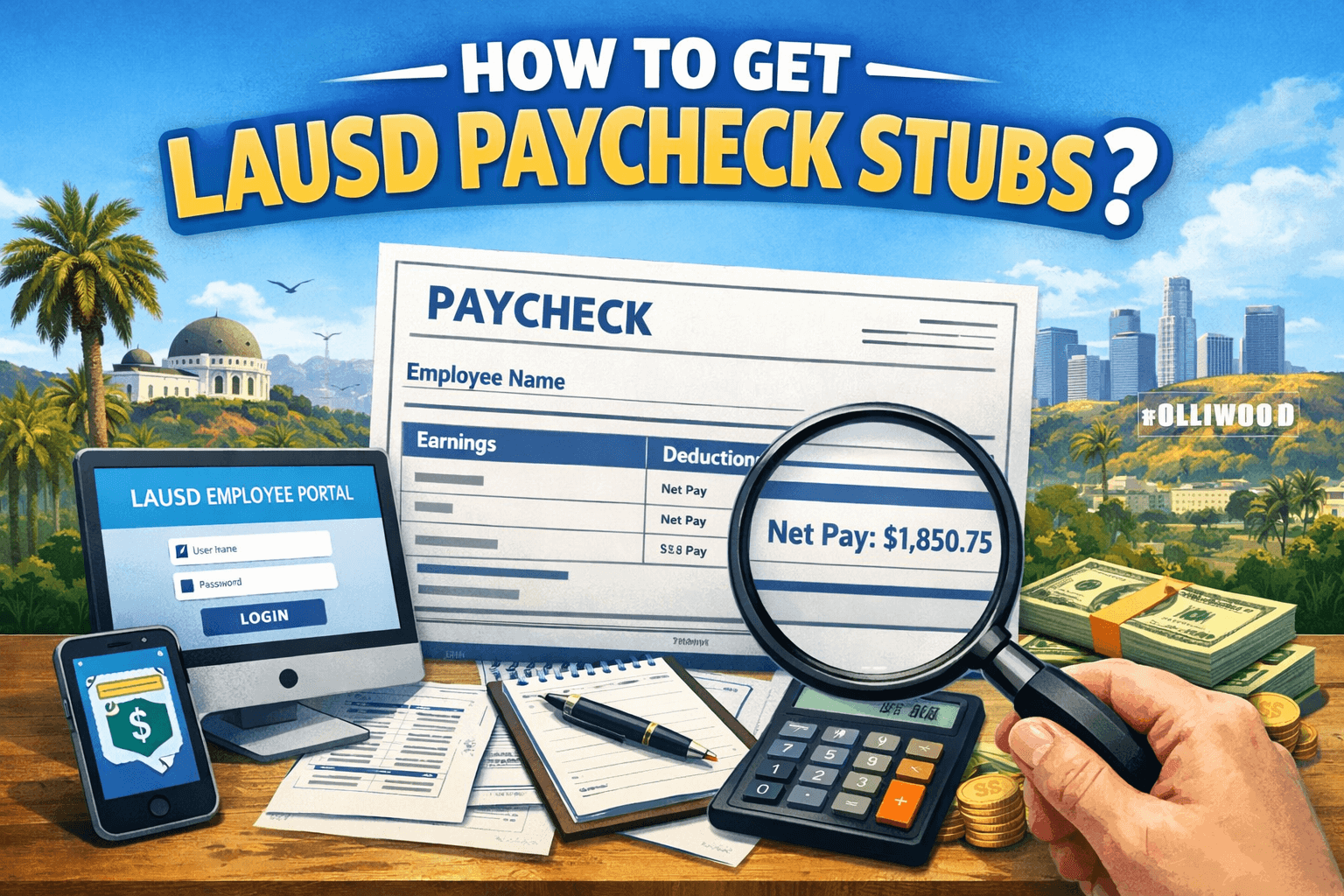
- Stubbuilder
- Dec 7, 2023
What Does An HR Do Before Making a Job Offer?- Everything You Need To Know
When the job offering process is in progress, many firms will follow a pattern of steps to ensure that they are offering the job to the right person. This is the same for both small and large businesses. In both scenarios, the starting process will generally start with a cell phone interview. If you are willing to create a paystub, then do not look further because Stubbuilder is here!
However, before a job offer is outlined, HR staff can go through several steps to ensure that the firm is making the right decision. Keeping this in mind, in this blog, we have listed out each HR’s steps before making a hiring decision and a job offer.
Establishing Candidate Research
Before a job is offered, an employer shall research thoroughly about a specific candidate. This includes checking job references, researching about the candidate’s background, and searching for their online reputation.
Recruiters who have access to professional networking sites- employers can understand whether a candidate is seriously looking for a job opportunity. They can view a candidate’s performed duties in the previous role- comparing what is listed on the resume and the site.
Social Networking Sites provide insight into the candidate’s personal information, which includes social habits, hobbies, and friends.
Non-job-related information like race, caste, gender, and other traits found on social networking sites shouldn’t be considered in finalizing a decision.
1. Review of Application and Resume
Initial Screening
HR begins by conducting an initial screening of the job applications and resumes. This step involves:
- Checking Qualifications: Ensuring the candidate meets the minimum qualifications for the position.
- Evaluating Experience: Assessing the relevance and depth of the candidate’s work experience.
- Identifying Red Flags: Looking for gaps in employment, frequent job changes, or inconsistencies in the resume.
Pre-Screening Interview
Often, HR conducts a pre-screening interview, which can be via phone or video call, to further assess the candidate’s suitability. This interview focuses on:
- Clarifying Resume Details: Confirming the information provided in the resume.
- Assessing Communication Skills: Evaluating the candidate’s ability to articulate their experience and qualifications.
- Understanding Career Goals: Gauging the candidate’s career aspirations and alignment with the company’s objectives.
2. Conducting Interviews
Structured Interviews
HR organizes structured interviews with hiring managers and other relevant team members. These interviews typically include:
- Behavioural Questions: Ask about past experiences and how the candidate handled specific situations.
- Technical Questions: Assessing the candidate’s technical skills and expertise relevant to the job.
- Cultural Fit: Determining whether the candidate aligns with the company’s culture and values.
Panel Interviews
In some cases, HR may arrange panel interviews, where multiple interviewers assess the candidate simultaneously. This approach helps in:
- Diverse Perspectives: Gaining insights from different team members to make a well-rounded evaluation.
- Efficiency: Reducing the number of separate interview sessions.
3. Skills Assessment
Testing and Evaluation
Depending on the job role, HR may administer various tests to evaluate the candidate’s skills and competencies. These assessments can include:
- Technical Tests: For roles requiring specific technical skills, such as coding or data analysis.
- Aptitude Tests: Assessing cognitive abilities, problem-solving skills, and logical reasoning.
- Personality Tests: Understanding the candidate’s personality traits and how they fit within the team dynamics.
4. Background Checks
Employment Verification
HR conducts background checks to verify the accuracy of the candidate’s employment history. This involves:
- Contacting Previous Employers: Confirming the candidate’s job titles, responsibilities, and duration of employment.
- Checking References: Speaking with professional references to gain insights into the candidate’s work ethic, performance, and behaviour.
Education Verification
Ensuring the candidate’s educational qualifications are legitimate and match what was stated in their resume. This involves:
- Contacting Educational Institutions: Verifying degrees, diplomas, and certifications.
- Cross-Checking Credentials: Ensuring any claimed professional certifications are valid and current.
Criminal Background Check
Conducting a criminal background check to ensure the candidate does not have a history that could pose a risk to the company. This check typically involves:
- National and Local Databases: Searching for any criminal records or legal issues.
- Compliance with Laws: Ensuring the background check process complies with relevant laws and regulations, such as the Fair Credit Reporting Act (FCRA) in the U.S.
Credit Check (if applicable)
For certain positions, particularly those involving financial responsibilities, HR may conduct a credit check to assess the candidate’s financial stability and responsibility.
5. Salary and Benefits Negotiation
Market Research
HR conducts market research to determine a competitive salary range for the position. This involves:
- Industry Standards: Comparing salaries for similar roles in the industry.
- Geographical Factors: Considering the cost of living and average salaries in the location where the job is based.
Internal Equity
Ensuring the proposed salary aligns with the company’s internal pay structure to maintain fairness and consistency. This involves:
- Comparing with Current Employees: Ensuring the salary offer is in line with what current employees in similar roles are earning.
- Budget Constraints: Considering the company’s budget for the role.
Preparing the Offer
HR prepares the job offer, which includes:
- Salary Package: Clearly outlining the base salary, bonuses, and any other financial incentives.
- Benefits: Detailing the benefits package, including health insurance, retirement plans, paid time off, and other perks.
- Job Title and Description: Clearly stating the job title and providing a detailed job description.
6. Legal and Compliance Checks
Employment Laws
Ensuring the job offer complies with local, state, and federal employment laws. This includes:
- Non-Discrimination Laws: Ensuring the offer is free from any discriminatory practices based on race, gender, age, or other protected characteristics.
- Contractual Obligations: Review any contractual obligations, such as non-compete clauses or confidentiality agreements.
Documentation
Preparing all necessary documentation for the job offer, including:
- Offer Letter: Drafting a formal offer letter that outlines all terms and conditions of employment.
- Employment Contract: Preparing a detailed employment contract, if applicable, that the candidate must sign before starting the job.
7. Final Approval
Internal Review
Before extending the offer to the candidate, HR seeks final approval from relevant stakeholders, which may include:
- Hiring Manager: Ensuring the hiring manager is satisfied with the selection and offer terms.
- Senior Management: Obtaining approval from senior management or executives, if necessary.
- Finance Department: Confirming that the salary and benefits package fits within the company’s budget.
Extending the Offer
Once all approvals are obtained, HR formally extends the job offer to the candidate. This can be done by:
- Verbally: Through a phone call to communicate the offer details and gauge the candidate’s initial reaction.
- In Writing: Providing a written offer letter that the candidate can review, sign, and return.
Discuss The Applicants
The hiring manager makes the final decision when making a job offer; however, an HR staff might contribute different perspectives about a particular candidate- this is why communication between those departments is a crucial part.
Additionally, there might be a panel interview that involves a discussion regarding the candidate with different panel members’s perspectives and opinions.
Therefore, before providing a job offer, the HR staff might poll the members from the interview panels with the hiring managers to discuss a particular candidate.
Confirm Employment History
To verify the employment history, many employers will ask the job candidate whether they can contact their former employers. This is typically done at the end of the hiring process, where the employer will let the job seeker know they are going to conduct employment verification and call the listed contact on the application to confirm this.
In some cases, a prospective employer will contact the candidate’s previous employer to develop a further understanding of the candidate’s background.
It is a common practice for HR to conduct background checks on a candidate before offering a job. Many online applications will require applicants to perform authorization to perform background checks before going further with the applications.
To hire the perfect candidate, offering the right compensation package is crucial. In addition to the background checks and employment verifications, HR might even perform a salary verification to ensure that this information is consistent.
Analyze Functional Skills
Before making the final offer, HR might conduct an assessment to determine the candidate’s functional skills. The last thing employers want is to get far into the process and discover that the candidate they are looking at does not contain the technical skills required for the job.
FAQs
What Takes Place Before An Offer Is Made?
Once the hiring manager selects a candidate, the company will need to perform a background check, establish a start date, issue a formal written offer and determine a salary.
These are all the essential steps to take into consideration within the hiring process.
How Long Does An HR take to approve a job offer?
After the interview is conducted, the average duration it takes to receive a job offer can be anywhere from 20 to 40 days. That being said, this can vary from company to company.
Does HR Provide The Job Offer?
After you finish the hiring process, if the job is for a large company, you will generally hear from someone in the HR department.
Does HR Determine Who Gets The Job?
HR professionals do not have the ultimate say when it comes down to bringing in a new candidate. Although they are potentially preventing you from getting the job, they do not have the final say.
As a HR How do I write an offer letter to a candidate?
Being an HR it is the sole responsibility to include vital notices, like job title, joining date, work schedule, reporting address, salary, benefits, termination conditions and privacy policy. If you are getting in trouble while creating a paystub online, you can check out a free paystub generator like Stubbuilder.
For example,
Dear [name of candidate ], We’re excited to offer you the role of [title] at [company name ]. We believe you’re a great match for the [full- or part-time] [title] position. In this position, you will be expected to [duties and responsibilities].
Conclusion
There are numerous steps which go into consideration before making a job offer to a particular candidate. These steps might be extended; they are essential for a company to hire the perfect candidate for the job.










